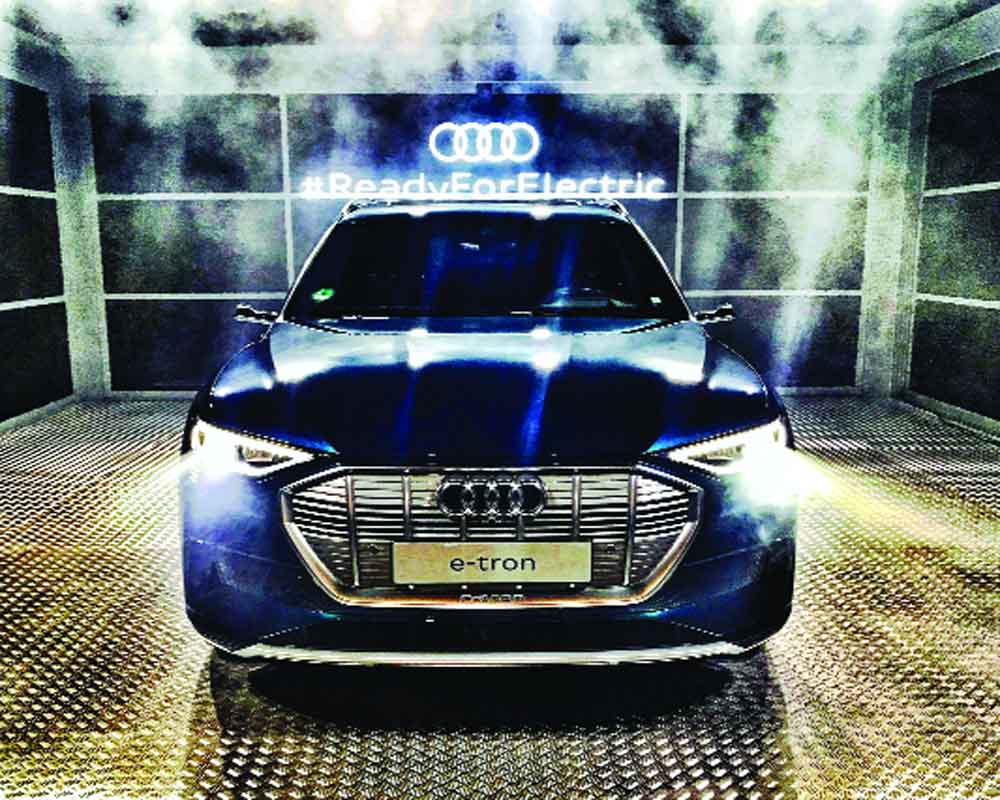Hyundai is launching the electric ‘Kona’ next week, Audi has its e-tron about to hit the market. But the electric future of vehicles is not as simple as launching a few cars and motorcycles.
First things first, there is no doubt that vehicular transportation is staring down the barrel of electrification, at least from an urban transportation point of view. But the Indian automotive industry appears to be staring down the barrel of a gun by the government which appears to be in a tearing hurry for electrification. The reasons to switch to electricity as the main mode of tractive power on vehicles are myriad. There is the dream to free the Indian economy from the vagaries of fluctuating crude oil prices as well as the huge amounts of money that India spends on importing crude every year.
Then there is air pollution. Vehicular pollution is a reality of life. It might not be as visible as the huge clouds of dust swirling around thanks to poor roads and never-ending construction projects, but it is a problem. Then there is that pipe dream of making India the ‘Detroit’ of electric-vehicle manufacturing, an argument that overlooks two things — Detroit’s factories are rusting hulks right now and India has done nothing, nada, to secure the resources needed to make the batteries that electrifying India’s roads will need. Policy wonks in the government talk of the need for private sector to step up, not even looking across the border at what China has done with regards to Lithium, Palladium and the Rare earths that mass-scale electrification will need. The government and policy think-tanks may not like it but this requires government intervention, not loud and rude sessions with Indian private sector manufacturers.
But the single-biggest elephant in the room is cost. And this will be evident with the Hyundai Kona, which is a Creta-sized electric SUV from Korea and the Audi e-tron, Audi’s latest electric SUV, based on the Q5 long-wheelbase. Both these cars will be launched in India in the next few weeks. They will be very modern and full of the latest technology, the e-tron dispenses with standard outside rear-view mirrors and replaces with cameras projecting images onto screens mounted on the door trim. Electric cars have unbelievable running costs. A few months ago, I wrote about the BMW i3s that I drove that gave me a running cost, with the air-conditioner and everything, of under a rupee a kilometre. The problem is that fixed costs of the vehicles are ridiculous, because batteries are expensive. And India has no battery mega-factories, although Panasonic and Suzuki are in partnership to build the first.
Some problems are hyped up to be much worse than they are, the problem of charging infrastructure, for example, which actually can be fixed very easy. There is also the fallacy of there not being enough electricity in India, which is untrue. And even if the electricity is thermal, an electric car is somewhat cleaner in the long run than a internal-combustion engine car, though given India’s energy mix, it has been shown that plug-in hybrids are the most carbon efficient vehicles in India at the current time. Also it has to be noted that India’s energy mix will change going forward with more renewables and more nuclear power coming onstream. The problem with electrification is actually in the back-end, the requirement for three-phase power everywhere and the massive investments in transformers and smart grids that will be required. Given the precarious financial health of most of India’s publicly-owned electricity suppliers, this is a hundred thousand crore question.
Back to costs for the consumer. There is one thing about the mad push for electric vehicles that I find disconcerting that even massive reductions in taxes and registration charges will not fix. The huge fixed costs of batteries. In a four-wheel electric car, the battery costs make up between 50-70 per cent of the overall vehicular costs. In a two-wheeler, the battery will make up between 70-90 per cent of the cost, because really metal and plastics are not that expensive. And if you have not noticed, a bulk of the vehicles on India’s roads today comprise commuter motorcycles, the sweet-spot for the manufacturers being the `50,000 mark. However, this industry is suffering a sales downturn because costs of popular 100-125cc motorcycles will climb 10-15 per cent thanks to BS-VI emission norms, which will make Indian motorcycles the cleanest in the world. So, expecting the poor guy on the street to fork out ` 1.2-1.5 lakh for an electric two-wheeler is ridiculous.
Yes, there has to be some sort of government push, but the government also has to invest, they cannot expect the private sector to shoulder the burden of their myopia. In the West, and Norway, which the government likes to quote where 39 per cent of the cars are electric, ironic for a country that makes it money exporting crude oil, subsidies on electric vehicles are huge. The FAME-II subsidies by the Indian government, on the other hand, are not even worth being called that. There needs to be far better thinking and thought put towards electrification. Some studies and pilot projects conducted have highlighted the issues that India will face, poor electrical infrastructure coupled with ambient Indian summer temperatures became a huge problem during one pilot project. Demanding the industry does one thing will not make these problems magically disappear.
Electrification will happen, and it might even happen sooner than we think in the natural scheme of things, a properly planned out build-up. With huge battery factories, better back-end electrical infrastructure and world-class vehicle manufacturing. A brainless ‘Charge of the Light Brigade’ style rush into electrification will be suicidal for the Indian automotive industry, which will be inundated with Chinese imports. Believe me, the Indian economy can afford that much less than the amount we spend on crude oil imports.


























